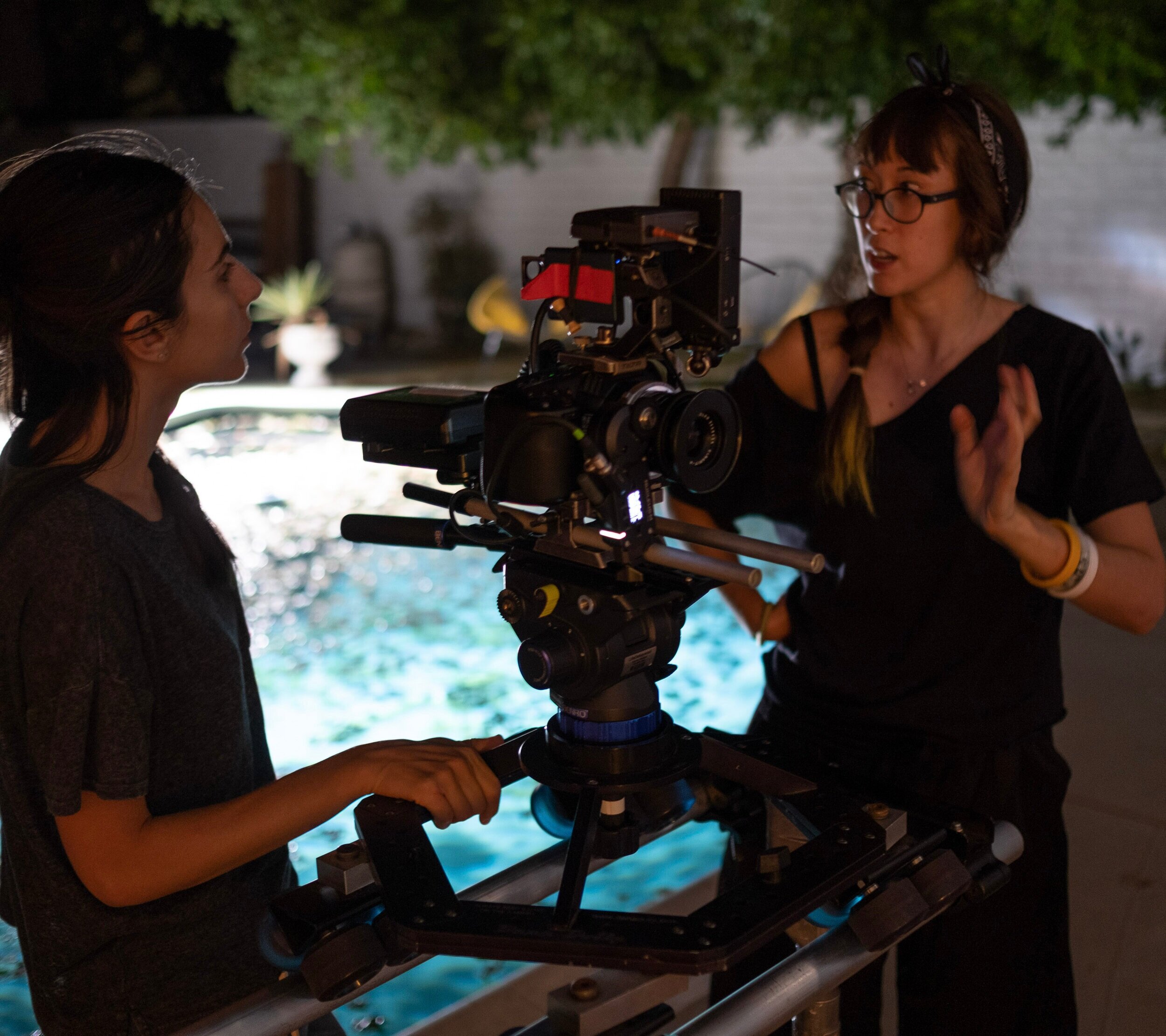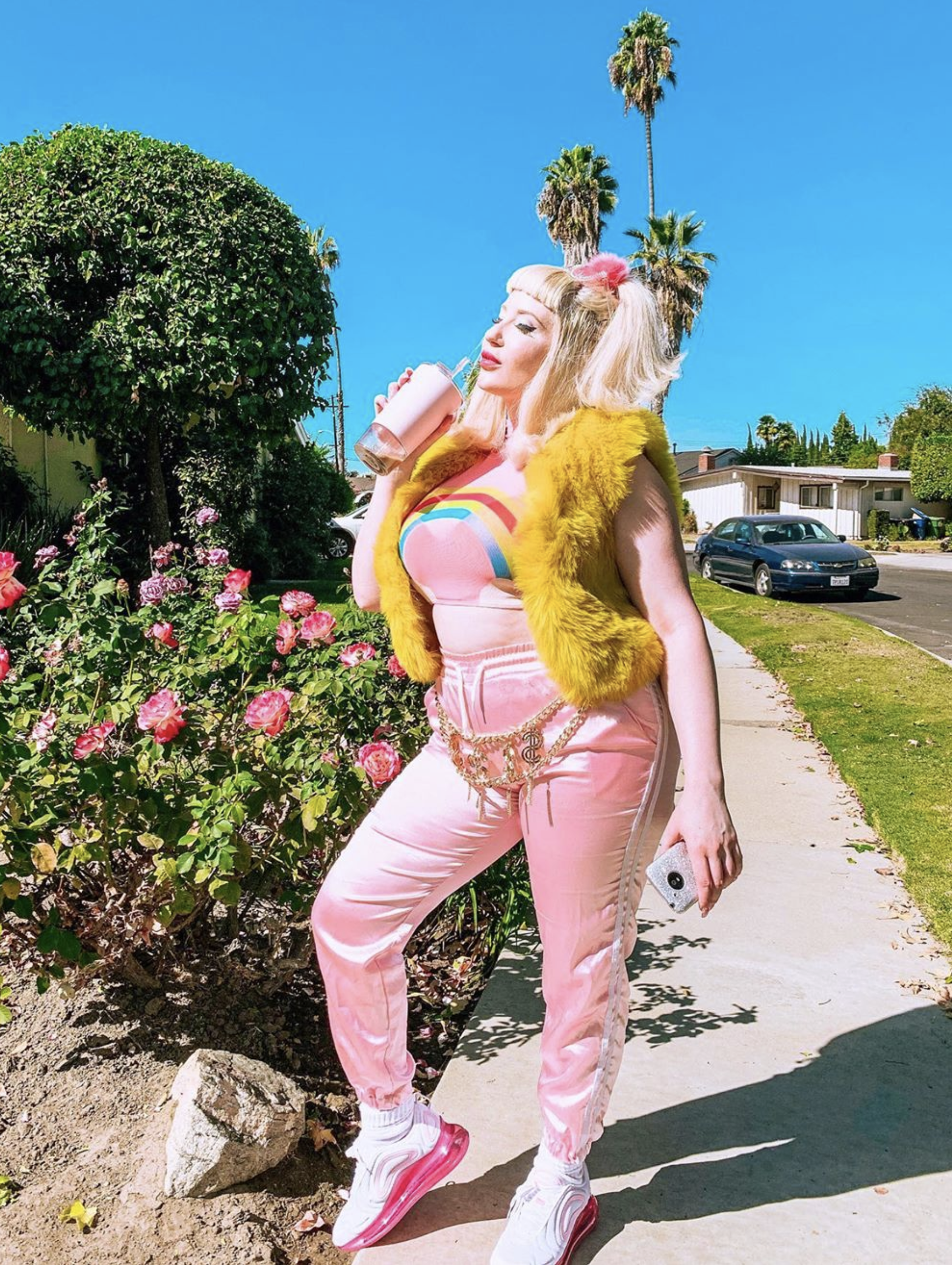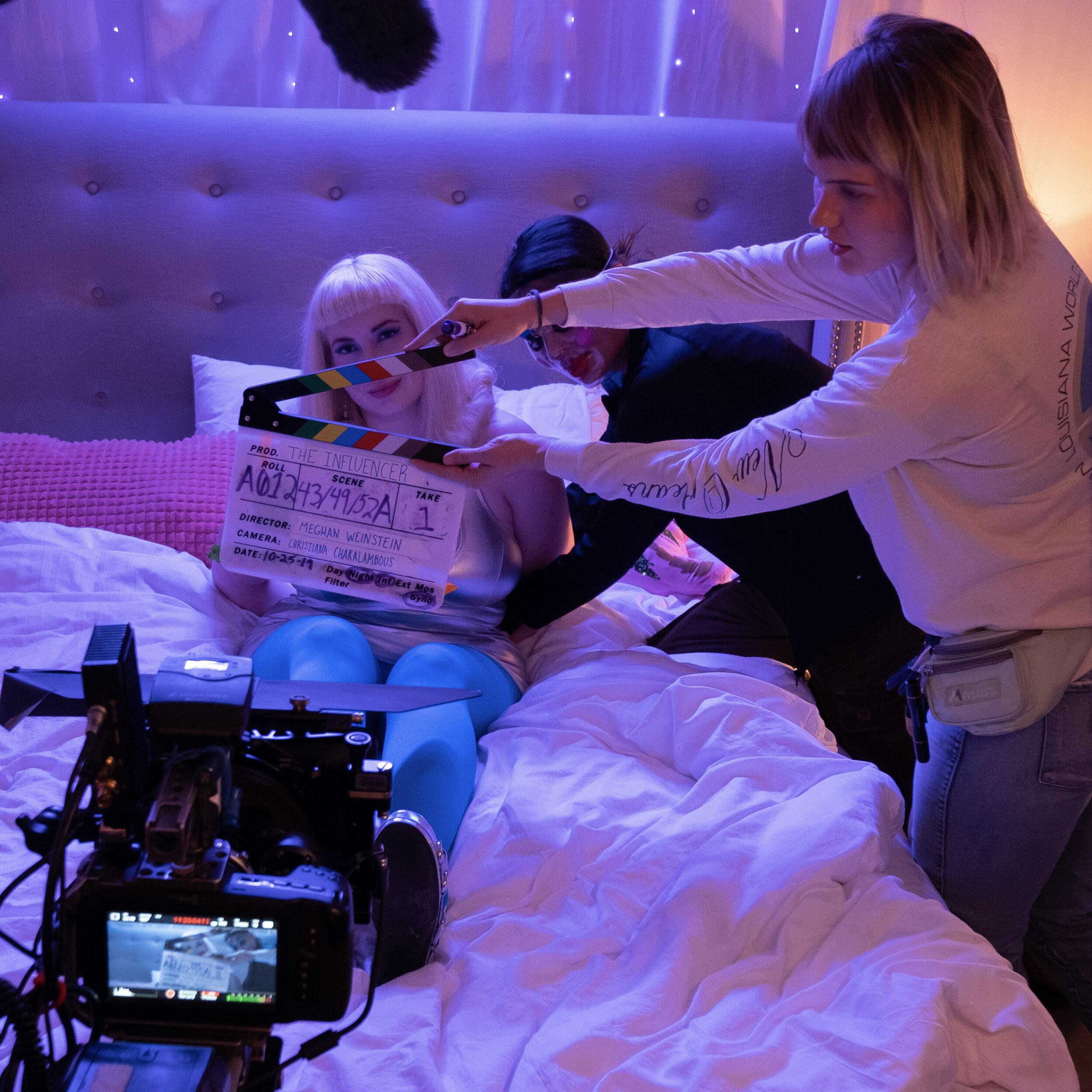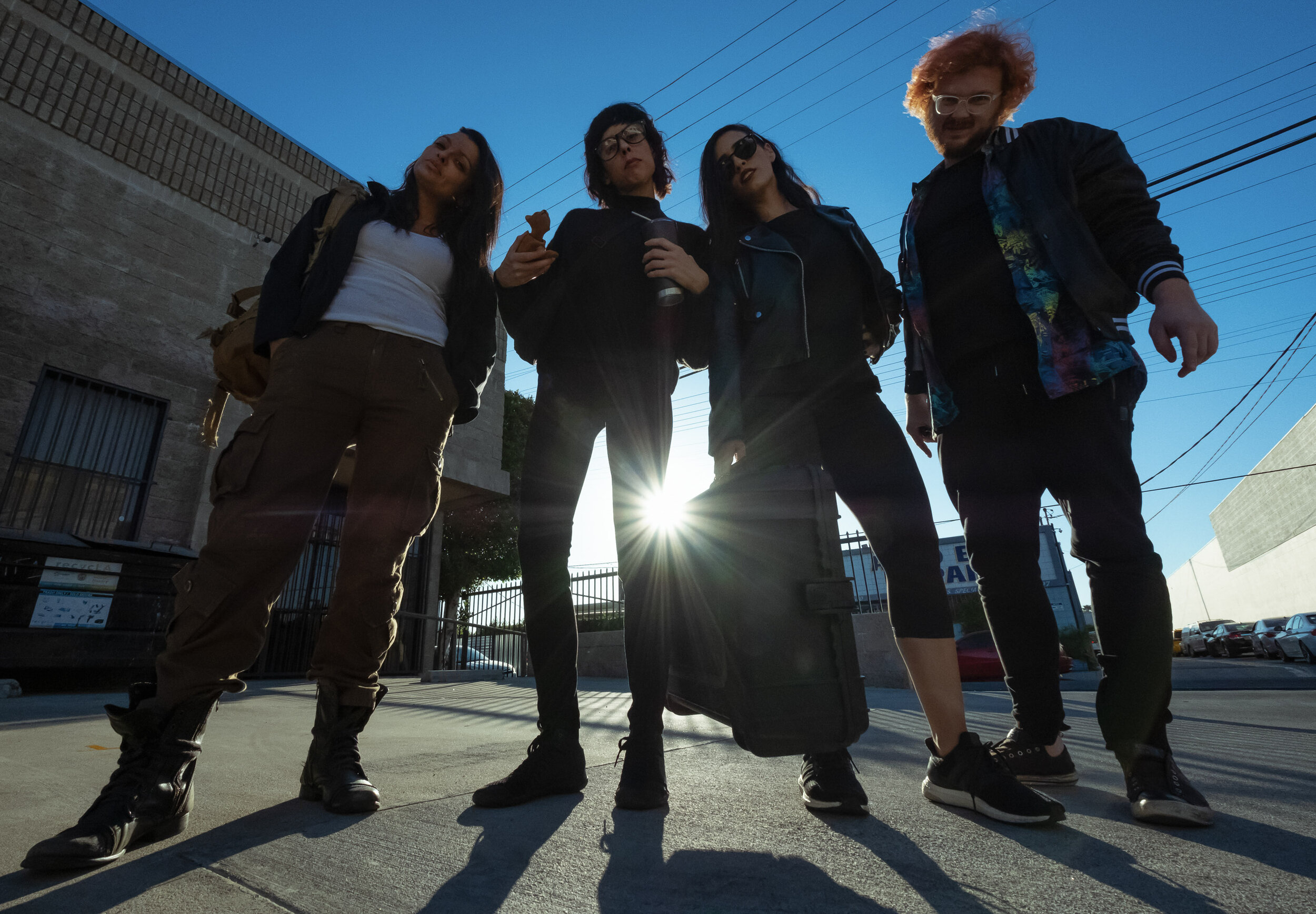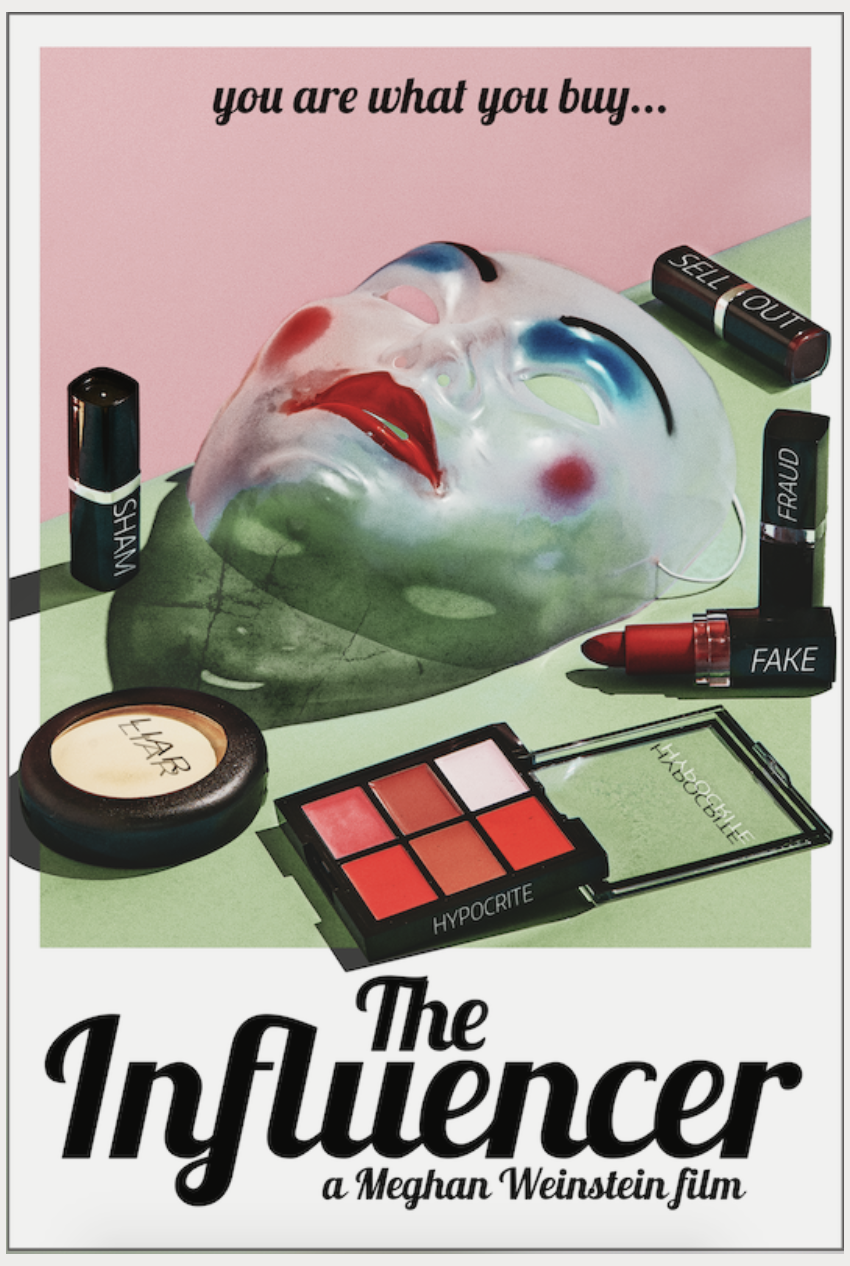Colorful Casting, White Worshipping, and Social Media Heist Films- An Interview with Director Meghan Weinstein
Meghan Weinstein is a vibrant Canadian filmmaker whose films capture the absurd and often hilarious complexities of human connection, continuously featuring carefully casted ensembles and eye-catching imagery. She’s won several awards for her short film Trippin' with the Folks, and is a master of indie-production, having produced many short projects and 3 feature films for budgets under $100,000. Her first feature film, The Influencer, is currently in post-production and was filmed with an almost all female crew. The film follows a social media influencer who signs a contract with a notorious cosmetic company and finds her home overtaken by activists who hack her online empire to carry out a risky plan with an enormous payout. We had the opportunity to ask Meghan a few questions about her mixed identity, being a POC in the film industry, and her new upcoming feature film.
What is your relationship with your mixed identity?
I grew up in Vancouver, British Columbia which has a very high Asian population so growing up there many of my friends were from different or mixed backgrounds and I was used to being in a classroom full of different looking kids. I was an only child and would watch a lot of movies with my parents. They would describe memories of watching or going to the movies as kids and their experiences sounded like one of the few similarities between their childhoods. My mother is Chinese. She grew up in Hong Kong while it was still a British colony. My father’s a Jew from Montreal. They are very different from one another. It was clear to me at an early age that art and film was a common interest that could be shared in spite of generation, country or culture.
We moved to San Francisco when I was 13. Moving to a new country at that age was already awkward. The first time I remember being mixed made me question my view of myself was during a visit to Hong Kong with my mom. A couple of people stopped to ask her if I was mixed because they thought I was pretty. After returning home to the US, what they saw as a compliment made me question, does that mean I’m less pretty here because of my half that isn’t white? Because the TV shows and movies I had watched projected this standard view of beauty as the skinny, doe-eyed white girl. That was my first eye-opening experience to how people see certain races as more beautiful than others and how there’s a problem with “white worshiping” in some parts of Asian cultures.
How has that relationship affected your work?
I did my undergrad in Fine Art, and while I found that the “art world” was not for me, those years of experimentation laid a solid foundation for my skills as a filmmaker. In my artwork, I was mostly exploring themes around technology and media and how it warps our perception of reality, especially of/for women. That conversation still continues nearly 10 years later in my feature, The Influencer, which is currently in post-production.
I like to write and am drawn to films that are driven by an ensemble of characters, not so much by just one character. So for any project, short or feature, I’m often casting quite a few actors. Casting is always stressful at some moments, but it’s one of my favorite parts of the filmmaking process. After you’ve been planning a project for months, or sometimes years, having actors come in and start to embody the characters is really exciting and sometimes sparks new ideas. Unless a character needs to specifically be one race because of story (time/place/setting) I’ll always leave the casting open to race or body type, even sometimes gender and age. It’s fun to find actors who are actually not what I pictured in my mind, but still somehow bring something interesting and new to the character. I’ve witnessed firsthand how male Directors have a preconceived view of what race or kind of looking women are fit to be cast in romantic roles. I know that we’re all conditioned to view certain “types” of characters looking a certain way, even myself. But if you go into casting thinking that way, the outcome is going to be totally un-original. I could compare this idea to a bouquet of flowers--you could have a bouquet with all one kind of flower and it will still look pretty, but if you mix it up with all kinds of different flowers and greens it becomes much more vibrant, lush and unique. And it better reflects the real world, which is full of all types of different looking people. That’s the reality of the world I live in and I make a conscious effort to make my productions reflect that.
In my early films when my technical skills weren’t that strong, something I would still get a lot of positive feedback on was my casting choices, and that’s definitely one of my strongest skills as a Director. I think that comes from not just recognizing strong actors but also not narrowing my vision when it comes to the search and being open to new ideas.
What has been your experience with navigating the film world as a mixed person of color?
I write/direct mostly comedy and something I’ve noticed over time is that sometimes when people (guys especially) see something of mine and like it, the reaction is positive but in a way where it’s apparent that they're surprised by it being funny and enjoyable in some way. For example I often get a “I actually really liked it….” or “That was actually pretty cool”....Why the “actually”?! Were they expecting to not like it?!
It most likely has something (everything) to do with me being a woman but I’ve wondered if it’s also due to the stereotype that Asian women are submissive, sweet and innocent, since my films often involve drugs, trippy imagery, and usually require somewhat of a dark sense of humor to thoroughly enjoy.
Why have you chosen to work in an almost all female crew?
Over the past few years, I’ve worked on different projects with different people and built a network of really great crew members. Whenever I can, I try to call the same people who I worked well with and who worked well with everyone else. That’s not only so I can build a lasting working relationship with them, it’s also so they can all build that team mentality so whenever there’s a shoot, we’ve already established how to work together and we can jump into a project together smoothly. And it makes the experience so much more fun and less stressful.
Over time most of the people that I’ve just naturally become friends with, who I also know I can trust to deliver great results on the job, those people have mostly turned out to be other women. Working on-set, you have to deal with a lot of ego, and I’ve found that factor is almost eliminated to a certain extent when I’m working with more women, specifically the gals I work with who are very hard-working but also, for lack of better words, super fucking chill. I think that because women do have to work really hard to stand out in this industry, when you give them the opportunity to lead and voice their logistical or creative opinions, they can thrive and really make your work and the process better.
Of course there are dudes on the crew too who are really collaborative and easy to work with so we have a nice balance, but there is definitely a strong female presence.
Your new film currently in production, “The Influencer”, tackles the darker side of social media. Why is this an important subject to be covering in today’s digital era?
Especially right now with Covid-19 so rapidly changing the world, I think people are in a time of reflection. We want (and need!) to be entertained as an escape but we’re also questioning how things can change to move forward in a better way.
The Influencer uses dark humor, colorful imagery and funny characters to shed a new light on a super topical subject—the effect that social media influencers have over the spending trends of youth and how this affects society on a global scale. Instead of glamorizing the lifestyle, The Influencer takes a critical view on consumerism and questions; what if someone could use their online influence to do something bigger than just sell products?
Photos from behind the scenes production of The Influencer
If you had to describe ‘The Influencer” in four words what would they be?
Satirical Quirky Stylistic Powerful
Do you have any advice for fellow mixed race creatives?
Pull your experiences from both sides especially the ones that contradict each other or where you felt a clash, because that’s the unique part of being from mixed cultures. Whether the experiences were good or bad they are still what shaped you and formed your point of view. So use that as creative fuel in putting pen to paper, or whatever your medium is, to help your specific voice stand out. Nobody is perfect and nobody has everything figured out in life, so embracing the confusion of the journey can really make your work relatable and leave the audience with something to relate to and reflect on afterwards.
